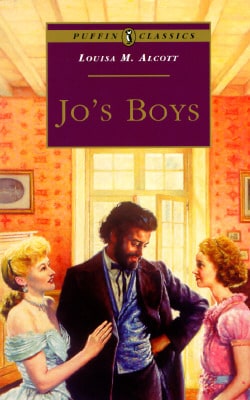Louisa May Alcott's Jo's Boys serves as a poignant continuation of the beloved stories that began with Little Women and continued through Little Men. Set a decade after the events of its predecessor, this third installment revisits Plumfield, the progressive school founded by Jo March and her husband, Professor Bhaer. Through the lens of Jo's experiences with her students—particularly the rebellious Dan, the adventurous Emil, and the musically gifted Nat—Alcott explores themes of growth, responsibility, and the complexities of human relationships.
One of the most striking aspects of Jo's Boys is its deep dive into the theme of personal growth and redemption. Each character is faced with challenges that test their morals and values. Dan, for instance, embodies the archetype of the troubled youth. His rebellious nature and tumultuous past create a compelling narrative arc as he grapples with his identity and seeks to find his place in the world. Alcott does not shy away from depicting the darker aspects of life, including the consequences of poor choices, which adds a layer of realism to the story. Dan's journey is not just about overcoming his past; it is also about understanding the importance of community and the impact of mentorship, particularly from Jo and Professor Bhaer.
In contrast, Emil represents the adventurous spirit, embodying the theme of exploration and discovery. His experiences at sea serve as a metaphor for the journey of life, filled with both excitement and peril. Alcott's vivid descriptions of the ocean and the challenges Emil faces highlight the unpredictability of life and the importance of resilience. Through Emil, Alcott emphasizes that while adventure is essential, it is equally important to have a strong moral compass to navigate the storms of life.
Nat, the aspiring musician, brings forth the theme of artistic ambition and the pursuit of dreams. His character resonates with anyone who has ever struggled to balance passion with practicality. Alcott beautifully illustrates the tension between following one's dreams and the societal expectations that often accompany them. Nat's journey is a reminder that the path to success is rarely straightforward and that the support of loved ones can make all the difference.
Alcott's portrayal of Jo as a central figure in the lives of her boys is particularly noteworthy. Jo's character has evolved since the earlier books; she is now a wife, a mother, and a mentor. Her unwavering commitment to her students reflects her growth and maturity, yet she retains the fiery spirit that made her so endearing in Little Women. Jo's struggles with balancing her personal aspirations with her responsibilities as an educator and caretaker resonate deeply with readers, particularly women who have faced similar dilemmas. Alcott's exploration of gender roles and the expectations placed on women during the 19th century adds a rich layer of social commentary to the narrative.
Another significant theme in Jo's Boys is the concept of community and belonging. The relationships among the characters are intricately woven, showcasing the importance of friendship and support systems. The bonds formed at Plumfield are not merely those of teacher and student; they evolve into familial ties that reflect the ideals of love and acceptance. Alcott's emphasis on the importance of nurturing these relationships serves as a reminder that we are often shaped by the people around us, and that community can be a powerful force for good.
Alcott also tackles the darker aspects of life, including themes of loss and tragedy. The inclusion of serious events, such as murder and shipwrecks, adds a sense of urgency and realism to the narrative. These moments serve as pivotal turning points for the characters, forcing them to confront their fears and insecurities. Alcott's ability to balance lighthearted moments with serious themes is a testament to her skill as a storyteller, making the book both engaging and thought-provoking.
In terms of character development, Alcott excels in creating multi-dimensional figures that resonate with readers. Each character's journey is unique, yet they are all interconnected, reflecting the complexities of real-life relationships. The evolution of Jo, Dan, Emil, and Nat is a testament to Alcott's understanding of human nature and her ability to portray it authentically. The characters' struggles and triumphs are relatable, making them timeless figures that continue to inspire readers today.
Overall, Jo's Boys is a masterful conclusion to the stories of the March family and their extended community. Alcott's exploration of themes such as personal growth, community, and the pursuit of dreams resonates deeply, making it a relevant read even in contemporary times. The book serves as a reminder that while life is filled with challenges, it is also rich with opportunities for growth and connection.
In comparison to other coming-of-age stories, such as those by authors like J.D. Salinger or Mark Twain, Alcott's work stands out for its focus on female empowerment and the importance of nurturing relationships. While Salinger’s characters often grapple with existential dilemmas and Twain’s with societal critiques, Alcott’s narrative is rooted in the belief that love, mentorship, and community can lead to redemption and fulfillment.
In conclusion, Jo's Boys is not just a sequel; it is a profound exploration of life’s complexities through the lens of growth, responsibility, and the enduring power of love. Alcott's ability to weave together the lives of her characters into a cohesive and meaningful narrative makes this book an essential read for anyone who has ever sought to understand the intricacies of human relationships and the journey of self-discovery.
























Reviews 0
Post a Reviews: